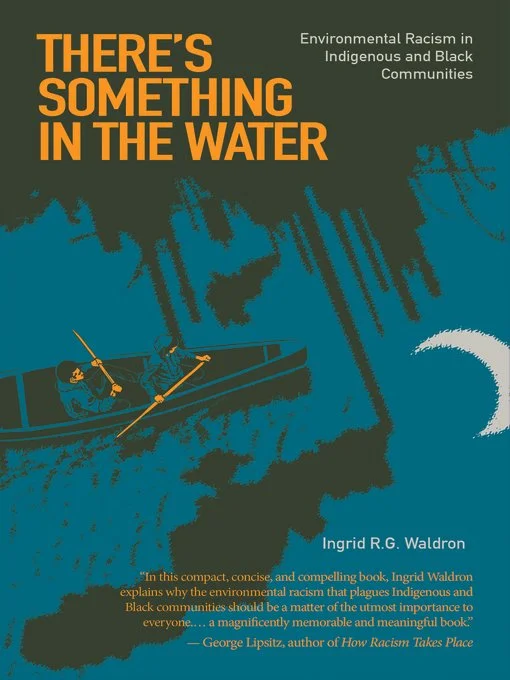There’s Something in the Water
-
English
-
Environmental racism, Nova Scotia, health disparities, Canadian structural / systemic racism, White Supremacy, Mi’kmaq and African Nova Scotian communities, capitalism, neoliberalism
-
Young Adult +
Ingrid R. G. Waldron examines the legacy of environmental racism and its health impacts in Indigenous and Black communities in Canada, using Nova Scotia as a case study, and the grassroots resistance activities by Indigenous and Black communities against the pollution and poisoning of their communities. Using settler colonialism as the overarching theory, Waldron unpacks how environmental racism operates as a mechanism of erasure enabled by the intersecting dynamics of white supremacy, power, state-sanctioned racial violence, neoliberalism and racial capitalism in white settler societies. By and large, the environmental justice narrative in Nova Scotia fails to make race explicit, obscuring it within discussions on class, and this type of strategic inadvertence mutes the specificity of Mi’kmaq and African Nova Scotian experiences with racism and environmental hazards in Nova Scotia. By redefining the parameters of critique around the environmental justice narrative and movement in Nova Scotia and Canada, Waldron opens a space for a more critical dialogue on how environmental racism manifests itself within this intersectional context.
This interview was released in February 2020, and references film producer / actor Elliot Page as Ellen Page, his name and pronouns prior to publicly introducing himself as a trans man in December 2020.


